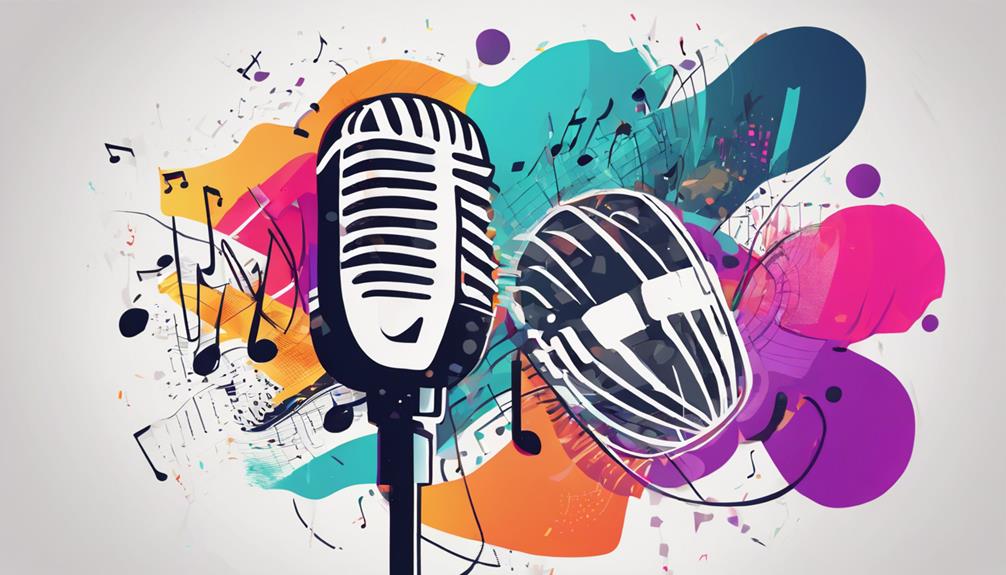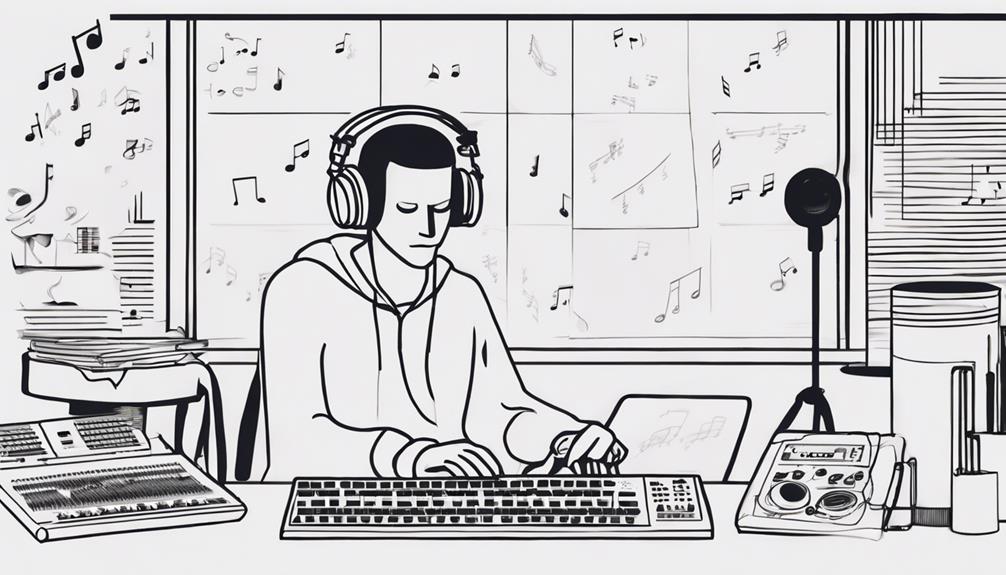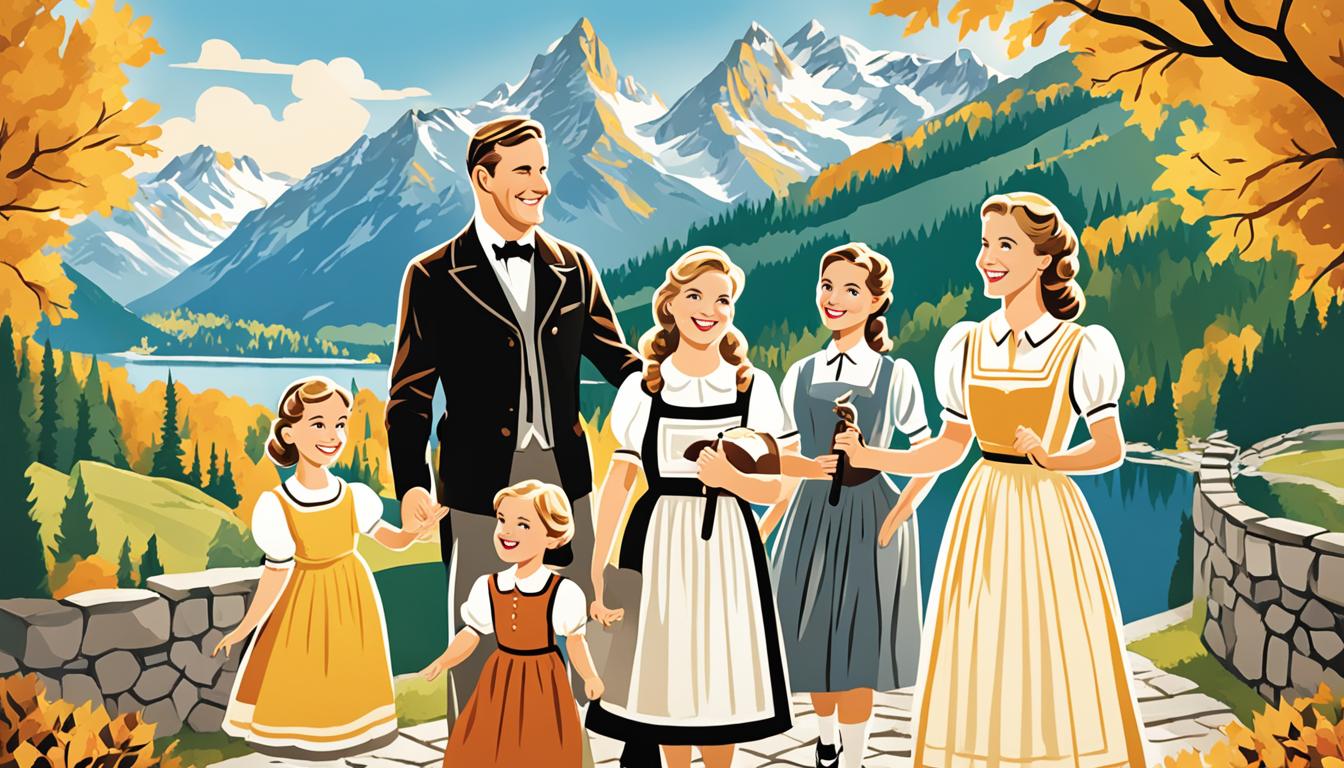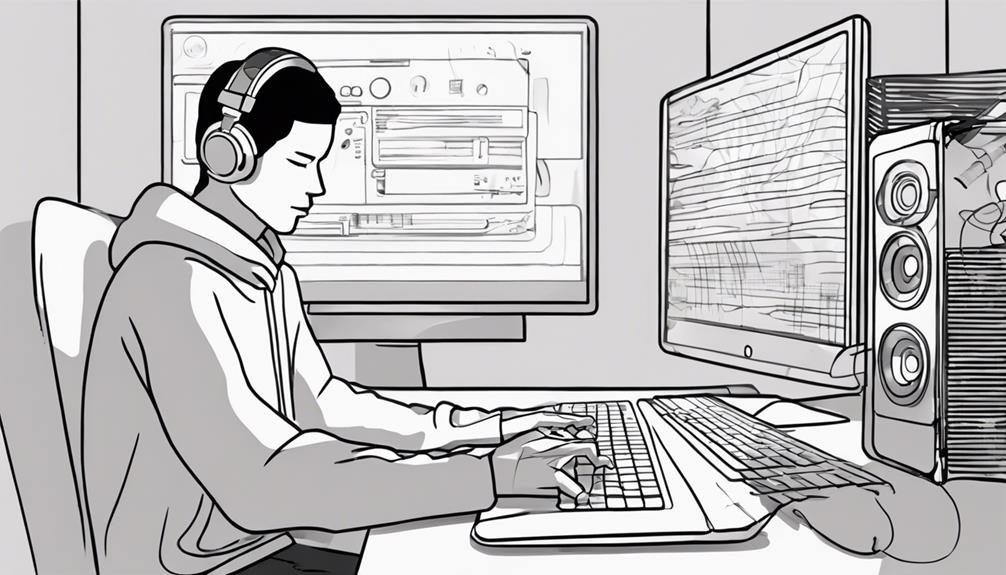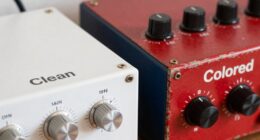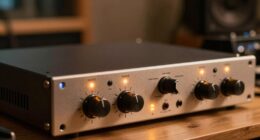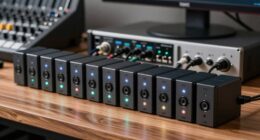The true tale of the von Trapp family is a heart-gripping story known worldwide. Their escape from Nazi-occupied Austria, along with their musical gifts, has fascinated millions. While the movie “The Sound of Music” tells a version of their story, the real events in the von Trapps’ lives are even more intriguing.
The family was bigger in real life, boasting 10 children with Rupert as the eldest. Maria von Trapp, who later became the stepmother, was first a tutor to the daughter also named Maria. Despite his strict military background, Captain von Trapp was actually a tender and music-loving father.
The family was already musically renowned before Maria joined them. Their talent shone across Europe, climaxing with a win at the Salzburg Music Festival in 19361. Music was a part of their lives well before Maria entered the scene.
Their flight from Austria was a critical chapter in their lives, just not as the movie suggests. They escaped just in time, one day before the borders closed1. Their move to the U.S. lacked the movie’s dramatic chase.
Key Takeaways
- The von Trapp family had 10 children, with Rupert being the eldest.
- Maria von Trapp was initially hired as a tutor for one of the children named Maria.
- Captain von Trapp was a warm and loving parent who enjoyed music.
- The family was already musically inclined before Maria’s arrival.
- Their escape from Austria was less dramatic than depicted in the film.
The Real Maria and Captain von Trapp
Maria von Trapp, also called Maria Augusta Kutschera, played a big part in the von Trapp family’s history. She didn’t join to care for all the kids like in the movie. Instead, she came to tutor just one of them. She soon loved the whole family, especially the seven kids Captain von Trapp had2.
Captain von Trapp, or Georg Johannes von Trapp, wasn’t as cold as the movie shows. He was actually a warm and loving dad. He supported his children’s music skills2. His love for the kids made Maria want to marry him. Her love for the kids was key, and she grew to love the Captain too2.
The true von Trapp family story is quite different from the movie. They actually had nine children, not seven2. Also, they weren’t as rich as shown in the movie. The Great Depression hit them hard, causing financial troubles2.
Maria joining the family didn’t start their musical journey. The von Trapps were already musical2. The children were taking music lessons and got better with Maria’s help2. Together, Maria and the Captain made the family’s music better, leaving a lasting legacy2.
| Real Names of von Trapp Children | Names of von Trapp Children in the Movie |
|---|---|
| Rupert | Leisl |
| Agathe | Louisa |
| Maria | Maria |
| Werner | Friedrich |
| Hedwig | Brigitta |
| Johanna | Marta |
| Martina | Gretl |
Table: Comparison of Real and Movie Names of von Trapp Children
In the movie, the von Trapp children’s names and numbers were changed. Their real names were Rupert, Agathe, Maria, Werner, Hedwig, Johanna, and Martina. These changes show how the movie took creative liberties with the story2.
The true story of Maria and Captain von Trapp also has a different timeline for their marriage. They married in 1927, different from the movie’s timeline2.
The Escape from Austria
In the beloved musical film The Sound of Music, the von Trapp family’s escape from Austria seems thrilling. They seem to cross mountains to find freedom. But in truth, they snuck away by train to Italy under the cover of night3.
The von Trapp family had to leave Austria due to political unrest and the Nazi threat. They left just in time, one day before the borders were sealed3. Pretending to go on a concert tour, they actually began their escape from Nazi control3.
The family’s journey was about preserving their way of life. Their music, which cheered many across Europe, became a beacon of hope. They wished to keep their beliefs alive and ensure a brighter future for their kids3.
Leaving Austria opened a new chapter for the von Trapps, leading them to America and fame. They didn’t know their story would one day inspire millions3.

| Family | Escape from Austria |
|---|---|
| Original seven Trapp children | Rupert, Agathe, Maria Franziska, Werner, Hedwig, Johanna, Martina4 |
| Later children | Rosmarie, Eleonore, Johannes4 |
| Father’s death | Georg in 19474 |
| Martina’s death | 19514 |
The Real-Life Legacy of the von Trapp Family
After escaping Austria, the von Trapp family settled in Stowe, Vermont. They bought a huge 300-acre farm for their big family5. They first tried farming for money but soon realized it wasn’t enough. They started hosting guests, their kindness, and the beautiful area quickly became famous.
The Trapp Family Music Camp was set up and got famous in just a year5. In 1944, Vermont’s governor, William Wills, helped launch the camp5. The family’s small tourist home grew into a ski lodge by 1942. By 1983, it transformed into a grand 96-room lodge, attracting people worldwide5.
The von Trapp’s impact on Vermont is deep. Yet, they faced hardships too. In 1980, a fire at their lodge took a guest’s life, bringing sorrow to their happy life5.
The von Trapp children contributed significantly too. Maria von Trapp worked as a missionary in New Guinea for 30 years5. Agathe von Trapp started schools in Vermont and Maryland5. Rupert became a doctor5, and Werner turned to farming5.
Now, Johannes von Trapp, the oldest son, keeps the legacy alive. He runs the Trapp Family Lodge and Brewery, sticking to their brewing roots. The lodge is a tribute to their history, welcoming those drawn to the family’s story and Vermont’s charm5.
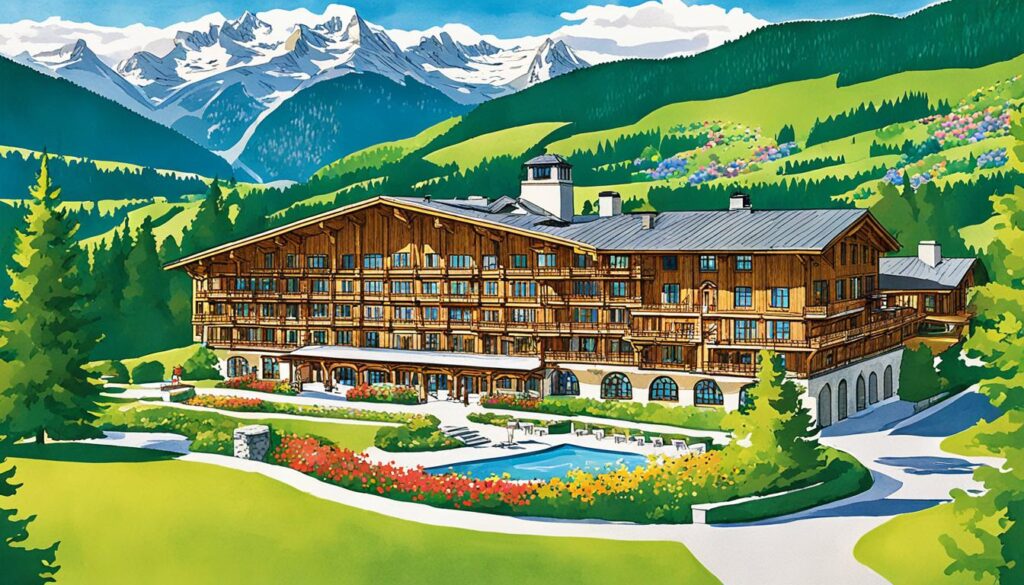
| Statistical Data | Details |
|---|---|
| The Trapp Family Music Camp | Became nationally renowned within one year of opening5 |
| Trapp Family Lodge | Expanded from a small tourist home to a 27-room ski lodge by 1942 and further expanded to a 96-room lodge in 19835 |
| Maria von Trapp | Served as a missionary in New Guinea for 30 years5 |
| Agathe von Trapp | Opened kindergarten schools in Stowe, Vermont, and Maryland5 |
| Rupert von Trapp | Practiced medicine as his career5 |
| Werner von Trapp | Became a farmer5 |
| Trapp Family Brewery | The von Trapp family brews its own beer5 |
The Von Trapp Family’s Musical Talent
The von Trapp family was known for their music, both in real life and in The Sound of Music. Maria is shown bringing music to them, but they were musical before she came.
Georg von Trapp was a hero from his time in the Austrian navy. He and his wife, Agathe Whitehead, had seven kids. In the early 1930s, they thought about making singing their job67.
They won at the Salzburg Music Festival in 19366. Their beautiful songs and shows let them tour Europe, performing for all kinds of crowds. Their music brought them close to people everywhere.
In 1938, they went to Italy and then moved to the US in 19396. There, they became famous as the Von Trapp Family Singers. They toured big cities and performed in front of many people8. The group grew to include Maria, Georg’s children, Father Wasner, and a viola da gamba player8.
They were very successful in the US. Their music won hearts, and their performances showed their amazing skill and harmony8. They settled in Vermont at the Trapp Family Lodge, where they also taught music and welcomed guests8.
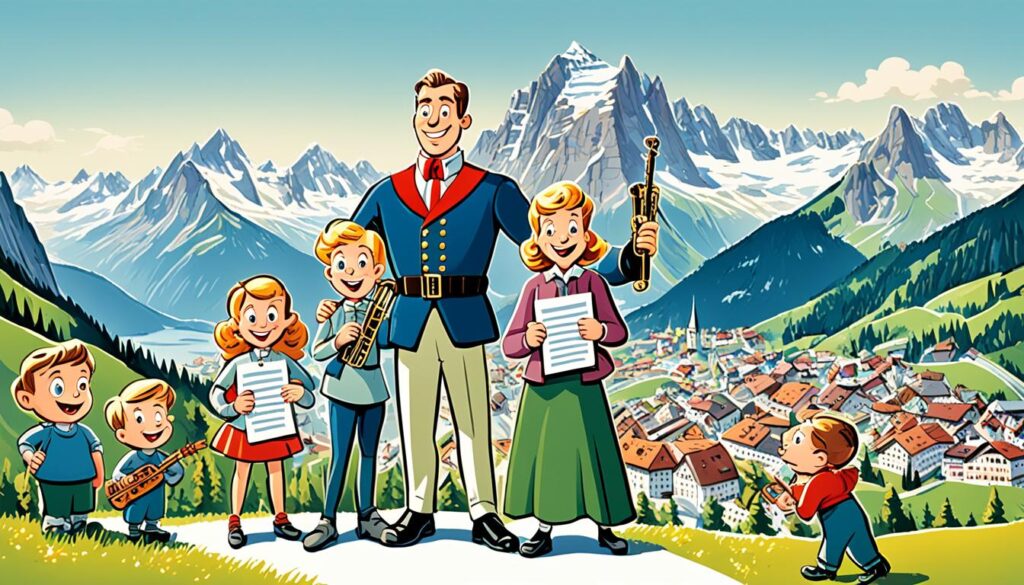
Life in America and Beyond
After settling in the United States, the von Trapp family began an amazing journey. They traveled the world, sharing their music9. Everywhere they went, people loved listening to them. Their tours included many countries, introducing their music to people from different cultures.
The von Trapps visited places like New Zealand, Australia, and Fiji. In Fiji, they performed over 100 concerts in just a few months9. Their concerts left the audience amazed by their talent and musical heritage.
The family also started a music camp in the United States9. It was a place where young musicians could grow their skills. This camp brought together people who love music, creating a community of creativity and learning. The von Trapps believed music could change lives, and they wanted to share that with others.
In Vermont, they ran the Trapp Family Lodge9. It was a beautiful retreat called Cor Unum at first. The lodge wasn’t just a place to stay; it was where they held music courses. They continued their mission of teaching music to others.
Maria von Trapp wrote a book about their life called “The Story of the Trapp Family Singers”9. It gives a close look at their adventures and how music was a big part of their life. The story was so loved, it was turned into German films called “Die Trapp-Familie”.

Their life in America changed the von Trapp family and their legacy9. They kept sharing their music and inspiring others. Through their journey, they showed how important music and heritage are.
| Statistical Data | |
|---|---|
| Visits to countries | New Zealand, Australia, Fiji |
| Number of concerts during Fiji tour | Over 100 in less than three months |
| Establishment of music camp | Provided a nurturing environment for aspiring musicians |
| Management of Trapp Family Lodge | Served as a country retreat, hosted music courses |
| Publication of “The Story of the Trapp Family Singers” | Provided insights into the family’s journey and musical legacy |
| Book adaptation into German films | “Die Trapp-Familie” immortalized their story on the silver screen |
The Impact of “The Sound of Music”
“The Sound of Music” is not just a movie. It’s a story that left a big mark on culture and the von Trapp family.
This film won the hearts of many with its story of love, courage, and music. The von Trapp family’s journey inspired many people. They admired their bravery and spirit.
Since then, “The Sound of Music” has become a favorite musical for many. Its success shows how much people love its story and songs. Julie Andrews led the cast with her amazing talent.

The von Trapps knew their story could touch hearts. Yet, the movie’s version of their lives made them have mixed feelings. It changed some details about them.
The real Georg von Trapp was kind and loved music, not stern as shown. He was really close to his kids before Maria came. This shows the movie altered his true nature10. Characters like Max Detweiler and Elsa Schraeder’s romance were made up for the film. They weren’t real in the von Trapp’s life10. Still, the movie helped make the family famous and left a legacy.
The movie also made Salzburg, Austria, famous for its beauty. Places like Hohenwerfen Castle and Mondsee Basilica became well-known. Visitors go there to see where the film was shot11.
People still love “The Sound of Music” today. It keeps winning hearts with its lovely story and songs. The von Trapp family’s story, shared in the movie, continues to be loved by all.
The Trapp Family Lodge and Brewery
Johannes von Trapp took leadership of the Trapp Family Lodge in 1969. This lodge sits on a vast 2,500-acre property in Stowe, Vermont12. Over time, it became a unique place for visitors, surrounded by nature. The lodge is also famous for its brewery, which creates German- and Austrian-style lagers12.
The brewery at the lodge, von Trapp Brewing, was started because of the family’s Austrian history12. Located on the property, it produces around 60,000 gallons of beer each year12. Every beer made there brings a taste of Austria to Vermont, showing the region’s rich beer-making culture12.
For now, von Trapp Brewing’s beers are sold only in Vermont. Yet, there are big plans to sell them in nearby states. This way, more people can enjoy these special brews12.

Accommodations and Amenities
The lodge offers various places to stay. Inside the main inn, there are 93 cozy rooms12. For those traveling in groups or wanting a longer visit, there are studios, family suites, and villas13.
A stay at the lodge comes with many perks. For a $35 nightly resort fee14, guests get parking, fitness center use, EV charging, and a ski shuttle in winter14. The fee also includes trail passes for exploring the property’s trails14. Plus, everyone can enjoy the indoor pool, outdoor hot tub, and summer pool14.
Dining and Activities
The lodge is known for its top-notch dining. The main dining room offers meals like Wiener Schnitzel and Maple Glazed Chicken13. The Trapp Brewing Bierhall Restaurant has casual options like pretzels and schnitzel alongside their craft lagers13.
There’s no shortage of things to do here. Guests can enjoy skiing, biking, hiking, swimming, and even yoga classes13. You can also get massages, go rock climbing, or fish. What’s great is that most activities are covered by the resort fee14.
Discovering the von Trapp Legacy
The lodge does more than just offer a nice place to stay and good food. It provides tours and experiences to learn about the von Trapp family’s history13. Guests can go on history tours, wildflower walks, and see how the lodge makes its maple syrup13.
The lodge still works as a farm with animals and gardens. It also has a bakery and cafe where guests can enjoy fresh pastries and coffee13.
A Serene Retreat and Thriving Destination
The Trapp Family Lodge attracts those looking for peace and athletes alike13. It’s a place for making memories, with beautiful views and a variety of activities14. The von Trapp family’s history adds a special touch to the experience13.
| Statistic | Value |
|---|---|
| Resort Fee | $35 per night14 |
| Number of Rooms | 93 in the main inn12 |
| Ski Trails | 67 kilometers of groomed trails and 100 kilometers of un-groomed trails12 |
| Annual Beer Production | Approximately 60,000 US gallons12 |
| Reconstruction | Rebuilt in 1983 after fire in 198012 |
Whether looking for a peaceful getaway, exploring the von Trapp legacy, or enjoying great food, the Trapp Family Lodge in Vermont12 is perfect. It’s a place where beauty, traditions, and hospitality blend seamlessly.
The Future of the von Trapp Legacy
The von Trapp family, despite hurdles, has a legacy that shines on. It lives on through efforts and the keeping of their fascinating tale. The Trapp Family Lodge in Stowe, Vermont, plays a huge part in this.

The lodge lets guests dive into the von Trapp family’s world. It offers a glimpse of beauty and history. It has guided tours that reveal the family’s story, including a chapel and a concert hall.
The film “The Sound of Music” didn’t bring the family much wealth. Yet, they value its cultural impact. They’re proud of how their story has touched hearts around the globe.
Today, Johannes von Trapp and his siblings run the Trapp Family Lodge. They keep the family’s spirit alive for visitors. Their goal is to share the von Trapp story while making guests feel at home.
The von Trapp family’s story is a beacon of hope. It shows how love, music, and faith can overcome challenges. They invite everyone to be part of their journey, ensuring their legacy influences future generations.
Reference:15
The Real Captain von Trapp’s Warmth and Love
Contrary to his film portrayal, Captain von Trapp was not cold-hearted. He was actually very warm and loving towards his family16. He deeply cared for them.
In contrast to the movie, he loved playing music with his kids. He supported their talents and connected with them through music. It was a special way to show his love16.
The real Captain von Trapp created a loving home. He was nurturing and affectionate. His love played a big role in their musical journey16.
The movie might show him differently, but it’s important to know the real man. He was a loving father and husband. His legacy of love inspires many today16.
Quote:
“My father was a warm, loving, caring, funny, and compassionate man, but he was also a man of duty, honor, and integrity.” – Johannes von Trapp
The Importance of Music in the von Trapp Family
Music was key in the lives of the von Trapp family, both before and after Maria arrived. Even though Maria is often thanked for bringing music into their home, they already loved music.
“The Sound of Music” won five Tony Awards, including Best Musical, out of nine nominations17.
Before the famous musical, the von Trapp family was already noted in music circles. They took the top prize at the Salzburg Music Festival, which was a big deal18.
- The von Trapp family’s musical journey wasn’t just thanks to Maria. Their mutual love for music drove their development.
- Maria helped, but the von Trapp children were already musically talented before she came.
“The Sound of Music” opened in 195917 and is still a famous musical.
“The original London premiere of The Sound of Music” took place in 1961, running for 2,386 shows at the West End’s Palace Theatre18.
The iconic musical shows the lasting legacy of the von Trapp family’s music. Its original Broadway production started in 1959, featuring Mary Martin and Theodore Bikel. It swept five Tony Awards, including Best Musical17. In 1961, the musical hit London’s Palace Theatre. It had a remarkable 2,386 performances18.
“The Sound of Music” won five Academy Awards, including Best Picture, in its 1965 film adaptation17.
The 1965 movie version of “The Sound of Music” won worldwide fans and critical acclaim. It snagged five Academy Awards, including Best Picture17.
The von Trapp family’s love and talent for music defined them. Their voices still touch people everywhere. This shows how powerful music can be.
Conclusion
The real story of the von Trapp family is more than what we see in “The Sound of Music.” It’s a captivating and inspiring tale of Maria, Captain von Trapp, and their kids. The film changed some details but their true journey from Austria to America is powerful.
It shows the strength of love, music, and faith. Their legacy lives on, encouraging us to chase our dreams and face challenges.
The Sound of Music tells two main stories: Maria and the Captain’s love, and their adventure19. It’s praised for showing these stories from different views19. A good story includes various angles: Main Character, Relationship, and more19.
The movie blends them well, keeping us engaged19. Keeping the story moving is key to holding our interest19. This is vital for true stories like the von Trapps’ escape in World War II19.
The Sound of Music, released in 1965, is a beloved musical film20. It shows the von Trapp family fleeing Austria after the Nazis came20. Based on a 1947 book by Maria von Trapp, it became a hit20.
The family eventually moved to Vermont, USA, and started the Trapp Family Lodge20. Some characters in the film, like “Uncle” Max, were made up20. The movie and real life differ in many ways, even in their escape20.
Also, the film softens Maria’s strict religious side20.
The movie came from a 1959 musical, itself based on true events21. Maria, at 18, joined a convent before marrying Captain von Trapp21. They moved to the US in the 1930s and ran a resort21.
Changes were made to the songs for the film, enhancing the story21. Filming in Austria added to the movie’s beauty and success21.
FAQ
What are the key differences between the real von Trapp family and their on-screen portrayals in The Sound of Music?
Were Maria and Captain von Trapp the central figures in the true story of the von Trapp family?
How did the von Trapp family escape from Austria?
What did the von Trapp family do after escaping Austria?
How important was music in the von Trapp family’s story?
What impact did “The Sound of Music” film have on the von Trapp family?
What is the Trapp Family Lodge and Brewery?
How is the von Trapp family’s legacy preserved?
Was Captain von Trapp really a cold-hearted patriarch?
Who introduced music into the von Trapp family’s life?
What is the true story of the von Trapp family?
How Did The Real Captain von Trapp’s Story Compare to The Sound of Music?
The real Captain von Trapp’s story differed from “The Sound of Music.” In the movie, some details were changed for dramatic effect. In reality, maria von trapp’s legacy & the sound was less about music and more about the family’s escape from Nazi-occupied Austria.
Source Links
- https://allthatsinteresting.com/von-trapp-family – The Real Story Of The Von Trapp Family Who Escaped The Nazis And Inspired ‘The Sound Of Music’
- https://www.biography.com/movies-tv/real-von-trapp-family-sound-of-music – How the Real von Trapp Family Differs from ‘The Sound of Music’
- https://www.history.com/news/the-real-history-behind-the-sound-of-music – The Real History Behind “The Sound of Music” | HISTORY
- https://en.wikipedia.org/wiki/Trapp_Family – Trapp Family
- https://www.rutlandherald.com/myth-and-reality-the-real-story-behind-145-the-sound-of-music-146/article_dc1a1a56-7ad7-5d33-923b-bc10700b0da0.html – Myth and reality The real story behind ‘The Sound of Music’
- https://www.archives.gov/publications/prologue/2005/winter/von-trapps-html – Movie vs. Reality: The Real Story of the Von Trapp Family
- https://www.bard.org/news/fact-or-fiction-the-real-story-of-the-von-trapps/ – Fact or Fiction? The Real Story of the Von Trapps | Utah Shakespeare Festival
- https://richardhowe.com/2024/01/12/follow-every-rainbow-the-life-of-the-real-maria-and-the-von-trapp-family-singers/ – Follow Every Rainbow – the Life of the Real Maria and the Von Trapp Family Singers
- https://richardhowe.com/2024/01/12/follow-every-rainbow-the-life-of-the-real-maria-and-the-von-trapp-family-singers – Follow Every Rainbow – the Life of the Real Maria and the Von Trapp Family Singers
- https://breakingcharacter.com/the-truth-behind-the-sound-of-music/ – The Truth Behind… The Sound of Music – Breaking Character
- https://www.salzburgerland.com/en/the-background-and-how-the-sound-of-music-became-so-popular/ – How The Sound of Music Won Over The World
- https://en.wikipedia.org/wiki/Trapp_Family_Lodge – Trapp Family Lodge
- https://www.goworldtravel.com/von-trapp-family-lodge-in-vermont/ – A Visit to the Von Trapp Family Lodge in Vermont
- https://www.trappfamily.com/faqs.htm – Trapp Family Lodge
- https://mb-henry.com/2019/03/19/the-real-von-trapps-a-favorite-musical-vs-the-history/ – The Real Von Trapps – A Favorite Musical vs. the History – M.B. HENRY
- https://freewalkingtoursalzburg.com/sound-of-music-true-story/ – The Sound of Music: Separating Fact from Fiction in the Von Trapp Story
- https://en.wikipedia.org/wiki/The_Sound_of_Music – The Sound of Music
- https://www.vontrapp.org/the-sound-of-music.html – vonTrapp.org | SOM
- https://narrativefirst.com/articles/the-sound-of-music-making-history-meaningful – The Sound of Music Making History Meaningful – Articles
- https://www.express.co.uk/celebrity-news/367524/The-real-story-of-the-von-Trapps – The real story of the von Trapps
- http://thewildbloginthewest.blogspot.com/2013/12/movie-musicals-that-got-it-right-sound.html – Movie Musicals That Got It Right: The Sound of Music



